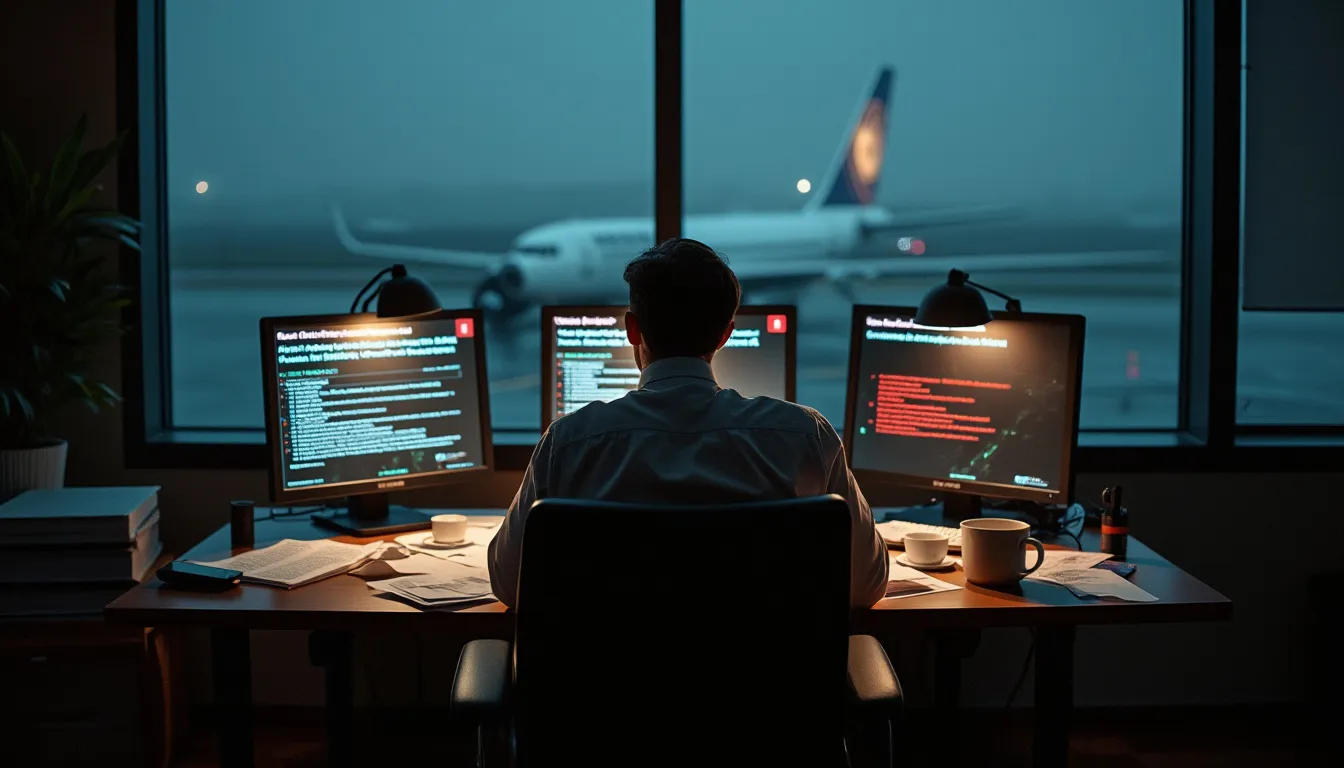There is a lawsuit recently filed by Delta Air Lines against CrowdStrike, a leading cybersecurity firm. This case has significant implications for the industry and highlights the delicate balance between implementing robust security measures and maintaining operational continuity. Let’s explore the details of this situation and its impact on businesses and the cybersecurity landscape.
The Incident: A Technological Perfect Storm
In July , Delta Air Lines experienced a widespread system outage that caused chaos across its operations. Thousands of passengers faced flight delays and cancellations, resulting in frustration and financial losses for both the airline and its customers. What makes this incident particularly noteworthy is Delta’s allegation that CrowdStrike’s Falcon platform, a widely used cybersecurity solution, caused the outage.
According to Delta’s lawsuit, CrowdStrike’s product interfered with critical software applications, causing them to crash or become unresponsive. This interference allegedly led to a cascade of failures across Delta’s IT infrastructure, ultimately resulting in the operational meltdown.
The Lawsuit: Breach of Contract and Negligence
Delta’s lawsuit against CrowdStrike focuses on two main charges: breach of contract and negligence. The airline is seeking both compensatory and punitive damages, though specific amounts have not been disclosed. This legal action raises important questions about the responsibilities of cybersecurity providers and client expectations.
Key Points of the Lawsuit:
- Breach of Contract: Delta likely had a service level agreement (SLA) with CrowdStrike outlining performance expectations and guarantees.
- Negligence: Delta claims that CrowdStrike failed to exercise reasonable care in the development, implementation, or maintenance of their Falcon platform.
Industry Impact: A Wake-Up Call for Cybersecurity Providers
This high-profile lawsuit serves as a wake-up call for the entire cybersecurity industry. It highlights the critical need for thorough testing, compatibility checks, and risk assessments when implementing security solutions in complex IT environments.
Key Takeaways for Cybersecurity Providers and Clients:
- Rigorous testing is non-negotiable
- Clear communication of risks is essential
- Robust incident response plans are crucial
- A collaborative approach to implementation is necessary
- Continuous monitoring and optimization are vital
Balancing Security and Operational Efficiency
One of the most significant challenges highlighted by this incident is the delicate balance between implementing robust security measures and maintaining operational efficiency. Organizations cannot afford to compromise on cybersecurity. However, as the Delta case illustrates, overly aggressive or poorly implemented security measures can themselves become a threat to business operations.
Strategies for Balancing Security and Operations:
- Implement a layered security approach
- Use phased rollouts for new security solutions
- Establish and monitor performance benchmarks
- Conduct thorough business impact analyses
- Perform comprehensive vendor due diligence
The Role of Service Level Agreements (SLAs) and Liability Clauses
The Delta-CrowdStrike case underscores the critical importance of well-crafted SLAs and liability clauses in contracts between cybersecurity firms and their clients. These legal documents play a crucial role in defining expectations, responsibilities, and recourse in case of failures or disputes.
Key Elements to Address in SLAs and Contracts:
- Clear performance metrics
- Specific incident response times
- Well-defined liability limits
- Compatibility guarantees
- Outlined testing and validation procedures
- Continuous improvement clauses
- Clear exit strategies
Implications for the Future of Cybersecurity
The Delta Air Lines lawsuit against CrowdStrike represents a pivotal moment in the cybersecurity industry that could shape future practices, expectations, and relationships between security providers and their enterprise clients.
Potential Long-Term Implications:
- Increased scrutiny of security solutions
- Evolution of testing and validation processes
- Greater emphasis on operational impact
- Shift in liability structures
- Acceleration of AI and automation in cybersecurity
- Development of collaborative security ecosystems
- Potential regulatory attention
Lessons Learned and Moving Forward
The Delta Air Lines lawsuit against CrowdStrike serves as a stark reminder of the complexities and risks involved in implementing cybersecurity solutions in critical business environments. As we move forward, organizations should prioritize a holistic security approach, rigorous testing and validation, and clear communication and collaboration.
Effective cybersecurity is not just about implementing the latest technologies; it’s about creating a resilient and adaptable security posture that aligns with your business goals. As your advisor, we’re here to help you navigate these challenges and build a security strategy that protects your assets without compromising your operations.
Contact us for a free consultation to learn more about how we can secure your business while ensuring operational continuity. In today’s rapidly changing threat landscape, having a trusted security partner can make all the difference in protecting your organization from cyber threats and operational disruptions.
Reference: Original Article





